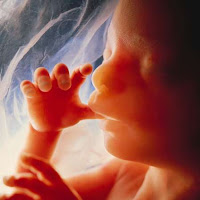written by my mother, in regards to my Indian grandmother's recent passing.
My husband and I were
getting ready for bed in our Canadian home, when we received an
unexpected phone call from India. It was our brother-in-law, who gave
us the shocking news that Mummyji had suddenly collapsed and died. We
were horrified to hear this, as Mummyji had always enjoyed excellent
health.
Pradeep immediately began to make plans to leave
for India, and I followed him three days later. The news of this
unexpected death spread rapidly through Pradeep’s large extended family.
Over the next few days, I joined my Indian family in the rituals
surrounding the death of a beloved family member.
Yesterday,
the main ceremony to honour Mummyji was held. The pundit came to our
home and performed a havan that lasted more than two hours. Pradeep
explained to me that each part of this ritual has layers of symbolism
embedded within it, reflecting cultural meanings that date back
thousands of years.
At the gathering that followed, I
met members of Pradeep’s large extended family. Mummyji had been a much
beloved member of this family, and so people came from far and wide to
honour her. Many of the guests were well known to me, since I had lived
in India for eleven years after our marriage. But some of them had not
seen me since our marriage, nearly twenty-seven years ago. How much
we’d all changed!
As I participated in the rituals
surrounding Mummyji’s death, I reflected on the special relationship I
had shared with her. I wondered how she felt when Pradeep originally
told her that he had fallen in love with a girl from Canada. This match
was so different from what she’d imagined for her eldest son. She and
Papaji had already been searching for a suitable bride for Pradeep, but
he’d refused to consider any of the young women they suggested. Now
they understood why – he was determined to follow his heart and marry
me.
We had a traditional Hindu wedding in Ghaziabad,
where my parents-in-law lived. Mummyji didn’t speak any English and at
that time I didn’t speak any Hindi. But she welcomed me to her home with
a warm hug and a blessing for happiness.
I used to
love to watch Mummyji prepare food. She would cut vegetables at
lightning speed, with never a wasted movement. The meals she prepared
were nutritious and delicious, and somehow she always made just the
right amount. In the early days of her marriage, she and Papaji
struggled to make ends meet. She became an expert household manager,
stretching the family’s resources to the maximum.
Pradeep
and I settled in Rishikesh, working as doctors in the hospital attached
to Sivananda Ashram. After the birth of our first baby, Mummyji and
Papaji came to stay for a few days and help out with our newborn
daughter. I remember being quite fascinated by the way Mummyji took
care of Sonia. To give her a bath, she’d squat
in the bathroom with one leg extended, and then balance Sonia against
her foot. After the bath she’d massage Sonia’s tiny body with oil.
She
took care of me as well, cooking delicious food that followed Ayurvedic
principles. After a pregnancy, a woman’s body is thought to be
susceptible to dangerous cooling, and so foods that are heating to the
system are given. One such food was a special form of laddu, made with
the gum of a particular tree.
In 1996, after living for
eleven years in India, Pradeep and I decided to move to Canada. I
wondered if Mummyji would feel disappointed that her eldest son and his
family were moving so far away. But she accepted our decision, and said
that she wanted what was best for us.
At this sad time of
Mummyji’s death, I find myself thinking about the relationship that we
built. We were two women with such different backgrounds, but we were
able to bridge the gap of culture and language through a bond of love.








 "
"























